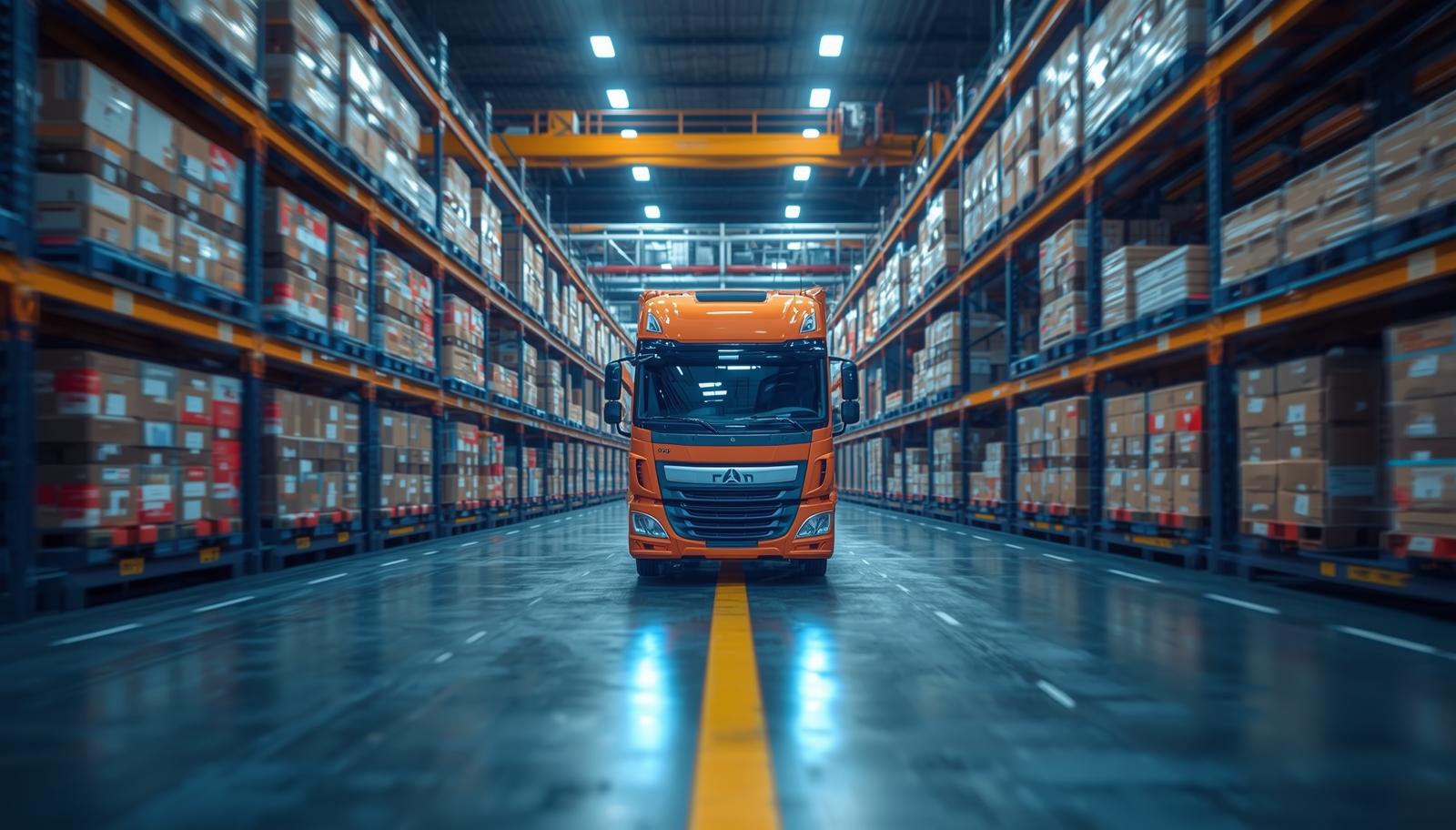
The shipping and delivery business in Saudi Arabia is a big deal. It’s like a giant bridge connecting East and West, thanks to the country’s perfect location. But as Saudi Arabia tries to move away from relying on oil, this delivery business is becoming even more important. This is especially true with their ambitious Vision 2030 plan to change their economy and become a bigger player on the world stage.
Getting things around in Saudi Arabia isn’t just about moving boxes. It’s about making this movement part of a bigger plan to grow the economy in a smart way that protects the environment. There are some bumps in the road, like giant deserts and tricky rules. But these challenges also open doors to exciting new ideas, working with other businesses, and growth in areas like online shopping and using technology to manage deliveries.
This comprehensive overview is an essential guide to the opportunities and challenges inherent in this rapidly evolving sector for stakeholders, investors, and professionals looking to understand or enter the KSA logistics market.
Key Challenges in Saudi Logistics
The logistics industry in Saudi Arabia faces several key challenges:
Geographic and Climatic Challenges
Saudi Arabia’s huge desert terrain and severe climate present distinct logistical obstacles. Summer temperatures that regularly exceed 50 degrees Celsius can impact both transportation efficiency and the integrity of products, particularly perishable ones. Furthermore, the enormous distances between major cities need powerful transportation networks capable of handling long-haul goods.
Regulatory and Bureaucratic Hurdles
Getting through the regulatory landscape in Saudi Arabia can be difficult for logistics companies.
The kingdom has strict customs laws and import-export controls, which can cause delays and raise operating expenses. Furthermore, the bureaucracy associated with acquiring the appropriate permits and certifications can be a substantial barrier for new and current enterprises looking to grow their logistics operations.
Infrastructure Limitations
Although Saudi Arabia has made significant expenditures in its infrastructure, there are still gaps that might restrict logistical efficiency. Some locations, particularly in the country’s less developed regions, lack suitable road and rail networks, which can limit market access and raise transportation costs. Because of inadequate rail and water transport capabilities, the reliance on road transit causes congestion and wear and tear on existing roads.
Technology Adoption and Integration
Saudi Arabia’s logistics sector has not been very fast in embracing new technologies that are transforming the global market. However, automated warehousing, advanced tracking systems, and blockchain for supply chain transparency are not as widespread. Nevertheless, this sluggish pace in technological adoption might impede efficiency hence the capacity to compete at an international level.
Skilled Workforce Shortage
The logistics industry’s rapid growth means it requires more skilled workers especially in emerging technology domains as there is a lack of talent today. Businesses should be able to attract and retain talents who specialize in supply chain management, technology, and customer service to remain viable.
Fluctuations in Oil Prices and Geopolitical Tensions
Trade dynamics and logistics operations can be influenced by the fluctuation in oil prices in case of geopolitical tensions in the region. To be able to serve their customers better with prompt delivery of goods, organizations need to manage these difficulties well without interfering with the flow of raw materials from suppliers.
Emerging Opportunities in Saudi Logistics
There are several opportunities in the Saudi logistics market:
Government Initiatives and Vision 2030
Saudi Vision 2030 is the main aim of the government to transform the logistics sector into a global logistics hub. This objective is backed by grand investments into infrastructure that will see to it such things as new ports, railways, and airports are put up on grounds marked. In the long run, opportunities get created for logistics companies to expand their business and better their quality services in the industry.
International Trade and Economic Zones
Saudi Arabia is positioned at a place where different international trade routes meet, and therefore it has this strategic advantage when it comes to logistics activities such as storage facilities. For instance, they have economic zones such as the Neom and Red Sea projects which are designed to draw in investors from other countries to widen their economic base thereby increasing their need for logistic services.
Growth in E-commerce
Although there is a growth of young and tech-savvy people in the Saudi Arabian community, it is worth mentioning that they are causing high demand for effective logistics solutions associated with online shopping expansion. Some businesses might earn a lot of income shortly because they can provide cheap, dependable delivery services quickly.
Technological Innovations
Logistics operations can be revolutionized in their efficiency and reduction of costs by the adoption of technologies like Artificial Intelligence (AI), the Internet of Things (IoT), and blockchain. The result is improved tracking, forecasting, and management of resources which in turn create opportunities for growth and service improvement by all stakeholders through the utilization of those three technologies.
Strategies for Effective Navigation
Logistics companies in Saudi Arabia can employ several strategies to navigate the challenges and capitalize on the opportunities in the industry:
Investing in Technology and Innovation
Logistics companies can increase productivity, increase transparency throughout the supply chain, and streamline operations by implementing cutting-edge technologies like blockchain, IoT, and artificial intelligence. Businesses can meet the increasing demand for last-mile delivery services and online shopping by investing in digital platforms and e-commerce solutions.
Building Strategic Partnerships
Logistics companies can get a competitive advantage by forming strategic alliances with both domestic and foreign industries. These collaborations can improve service offerings, boost market penetration, and make use of local expertise.
Focus on Sustainability and Efficiency
Implementing sustainable practices, such as optimizing route planning, using renewable energy sources, and reducing waste, can assist logistics companies in lowering their environmental footprint and appealing to environmentally conscious customers. Prioritizing operational efficiency, from warehousing to last-mile delivery, can also help businesses save money while increasing customer satisfaction.
Invest in Infrastructure and Capacity
For a logistics firm to keep up with increasing demand, it is necessary to make investments in enlarging its infrastructure as well as adapting its capacity. Such actions might involve constructing additional storage spaces for goods or improving car fleets used for transportation, ports, and airports requiring financial injections. Besides, the establishment of partnerships between businesses engaged in this area and local governments when carrying out public works constitutes one way of ensuring contract extension over a long time without having any concerns over the sufficiency of essential resources.
Develop a Skilled Workforce
If logistics companies invest in training and development programs, they will be able to create a skilled force that is capable of adapting to the quickly changing world. When equity in technology, supply chain management, and customer service are ensured in our recruitment strategy, the market will be at our feet, and business success is assured.
Adapt to Regulatory Changes
To navigate Saudi Arabia’s changing regulatory environment you need active adaptation and collaboration with various government bodies. You need to know changes in customs rules, export-import controls, and any other important rules if you run a logistics company. Engaging with policymakers and joining industry associations can enable firms to take part in making regulations as well as conforming to them.
The logistics companies in Saudi Arabia can be able to maneuver the challenges and take advantage of the opportunities that are available following the transformation of the industry using the outlined approaches. Integrating technology, strategic partnerships, sustainability, infrastructure investments, human resource development, and regulatory adjustments can help companies do well in Saudi Arabia’s dynamic logistics domain.
Case Study: SPARK (King Salman Energy Park)
King Salman Energy Park (SPARK) is a transformative logistics project in the Eastern Province of Saudi Arabia, established in 2018. It is a fully integrated industrial ecosystem designed to support Saudi Arabia’s Vision 2030 by enhancing the country’s logistics capabilities and diversifying its economy.
SPARK exemplifies how Saudi Arabia is transforming its logistics sector to become a global logistics hub. Through strategic investments, technological advancements, and sustainable practices, SPARK is set to contribute an estimated USD 150 billion to Saudi Arabia’s GDP by 2050 and create 100,000 jobs.
Conclusion
The logistics industry in Saudi Arabia is expected to grow considerably due to its strategic location, government policies, and Vision 2030. Companies may encounter some obstacles that include physical barriers, legal procedures, and technology incorporation even though so many more prospects exist that would allow them to grow while inventing new products and services. Key strategies for navigating the logistics landscape include investing in technology, forming strategic partnerships, focusing on sustainability, expanding infrastructure, developing a skilled workforce, and adapting to regulatory changes.
Projects like SPARK (King Salman Energy Park) exemplify the transformative potential of Saudi Arabia’s logistics sector. Through strategic investments and a commitment to sustainability and innovation, SPARK is set to play a pivotal role in achieving the Kingdom’s economic diversification goals, contributing significantly to GDP and job creation.
For stakeholders, investors, and professionals, understanding these dynamics is essential for capitalizing on the growing opportunities within Saudi Arabia’s logistics market.
Get a step ahead in the future of global business with expert logistic solutions. Contact Wahyd Logistics and take your global business to the next level.






